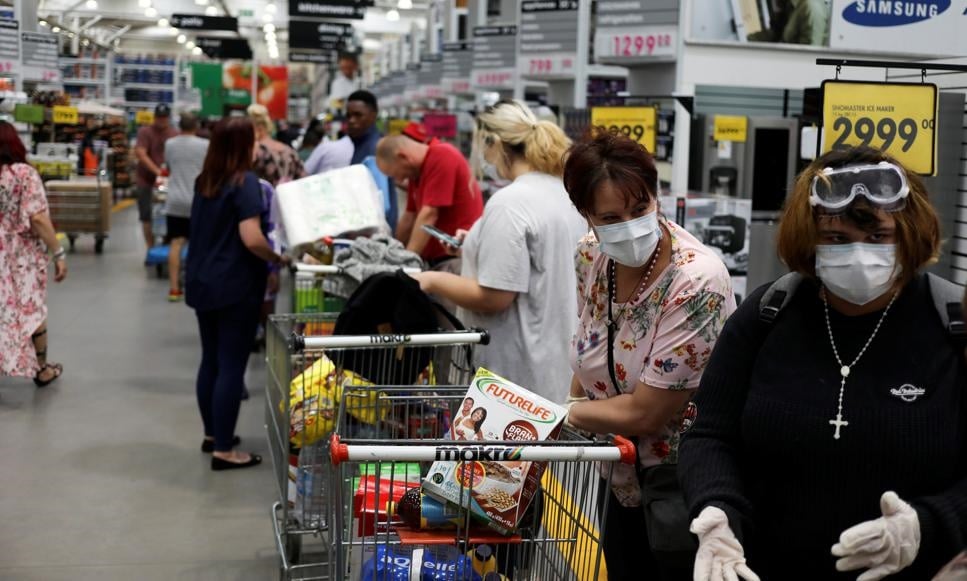
Professor Renata Schoeman, a psychiatrist and head of the MBA healthcare programme at the University of Stellenbosch Business School, has an explanation for South Africans’ behaviour during this time of crisis and the palpably heightened levels of anxiety and panic-buying that has occurred.
She says that when people experience uncertainty in terms of their health and security, they automatically want to try to take control in some way.
“Times of crisis are common, so are pandemics. Uncertainty and herd mentality are common during times of national crisis. You can think back to the recent water crisis in Cape Town.
"It was very real and I remember going into a Spar and seeing people elbowing each other out of the way to grab bottles of water and hand sanitisers.
“One big question now is why are people stockpiling toilet paper? It goes to that issue of control.“
People misinterpret port controls to mean that no products will come into the country and the shelves will remain bare, so they want to be able to control at least one aspect of the crisis, which means securing things for themselves and their loved ones,” she said.
Schoeman said there were a few things causing anxiety in the bigger context of the country.
“Companies are under pressure – we’re already experiencing economic hardship, so many could be experiencing a fear for their work security. Already, people are putting in reduced hours, while others are in no work, no pay situations.
"There are also fears that if public transport shuts down, many people won’t be able to get to work, which also prompts economic fears.”
Sandy Lewis, a clinical social worker and head of therapeutic services at Akeso mental health facilities, said: “Anxiety and worry are understandable emotions when looking into a future we simply cannot know. Our anxiety serves little constructive purpose and tends to erode our personal resilience in the face of challenges.
“South Africans from all walks of life are confronted with new realities in a challenging, uncertain environment, requiring all of us to work on building and strengthening personal resilience.
"Being resilient means being psychologically flexible, taking hold of our minds to calm our emotions, and facing the new realities with clear sight and thought.”
Schoeman advises that people try to stick to their normal routines as much as possible and, while gatherings are limited to 100 people, people can still go outside for walks to take breaks.
“Use technology to stay in touch with people – you can Skype or teleconference. Get off panic groups on social media that feed into fear. Be careful of exposing children to too much technology – stick to the usual one hour because overexposure can negatively impact on their mental health.
"In times like these, let’s also think about the elderly and make sure we reach out to them,” Schoeman said.
The World Health Organisation’s department of mental health and substance abuse released a guide on mental health and psychosocial considerations last week.
Some of the advice included: “Minimise watching, reading or listening to news that causes you to feel anxious or distressed. Seek information only from trusted sources and take practical steps to prepare your plans to protect yourselves and your loved ones.”
 | ||||||||||||||||||||||||||
Vuyo MkizeHealth journalist | City Press | ||||||||||||||||||||||||||
| ||||||||||||||||||||||||||
| Rise above the clutter | Choose your news | City Press in your inbox | ||||||||||||||||||||||||||
| City Press is an agenda-setting South African news brand that publishes across platforms. Its flagship print edition is distributed on a Sunday. |




 Publications
Publications
 Partners
Partners








